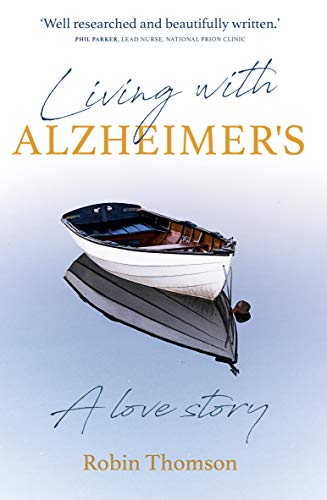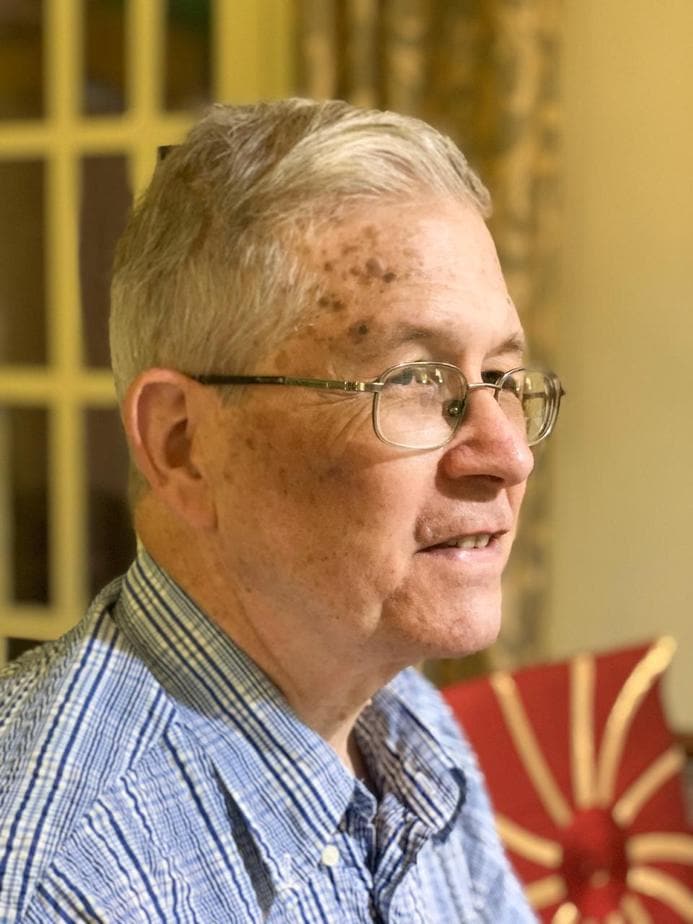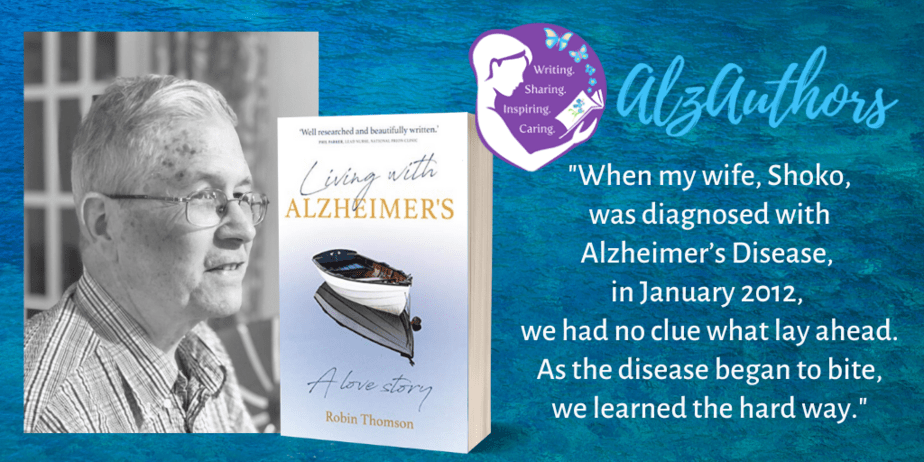 Living with Alzheimer’s: A love story by Robin Thomson
Living with Alzheimer’s: A love story by Robin Thomson
When my wife, Shoko, was diagnosed with Alzheimer’s Disease, in January 2012, we had no clue what lay ahead. As the disease began to bite, we learned the hard way. We had been married nearly forty five years, living in India, the United Kingdom and Japan (where Shoko was born), bringing up our two children, sharing our life together. Now we went through discouragement and relentless pressure as her personality changed and she lost her capacity in many areas of life. What kept us going was the love and practical help of family and friends, and the remarkable friendship and support of the carers who visited us, backed up by health and social care professionals. Shoko died of heart failure in 2018.
I wanted to tell our story as openly and honestly as possible, hoping that it could be helpful to other caregivers, families and friends, sharing the same pain and pressure, as well as the hope and resources. It’s difficult to convey the sense of bewilderment and sometimes hopelessness you feel when caring for a person living with Alzheimer’s, without appearing negative or self-pitying. But on the other side, the most remarkable thing for me was my experience of Shoko’s love and affection, even when her understanding was becoming more and more confused.
Through this I learned that our response to those living with Alzheimer’s, or any kind of dementia, is based on love. The disease can appear fearsome and mysterious. But we learn not to be afraid. The persons affected are still persons. We go on relating with love and attention.
I learned – rather late in the day – that my most important contribution was the way I related to Shoko.
‘Your body language is more important than what you say,’ our daughter told me many times, long before I understood it myself. It was true. If the tone of my voice was impatient, or if I hustled Shoko to sit down, or get up, or go out, she found it distressing. ‘Why are you so cross with me?’ If I spoke softly, or held out an encouraging hand, the rewarding smile warmed me more than I deserved.
I also experienced new levels of love and support from others. It is vital for friends and family members to be intentional in supporting those living with dementia, as well as those caring for them. Friends don’t always find it easy. But they don’t give up or stay away.
I learned how important it is for caregivers to build a support team. They can’t do it on their own and the person living with Alzheimer’s needs to have a range of people with whom they can relate with confidence and ease, so they are not dependent on one person. Building a support team takes time. It isn’t always easy – social care provision, family and friendship networks vary greatly. But we need that team.
A community of love and friendship is what sustains all of us and enables the self to retain its identity and meaning.
 * * *
* * *
Robin and Shoko Thomson met when he was travelling to India and she was returning to Japan after studying abroad. They were married and lived in India for over twenty years, teaching and training church and community leaders. After they returned to the UK Robin wrote and taught on cross-cultural understanding and leadership development.
In January 2012 Shoko was diagnosed with Alzheimer’s disease. She died of heart failure in 2018.
Facebook: https://www.facebook.com/robin.thomson.39904
Twitter: @rasthomson



One Response
Welcome, Robin. Congratulations on your book.